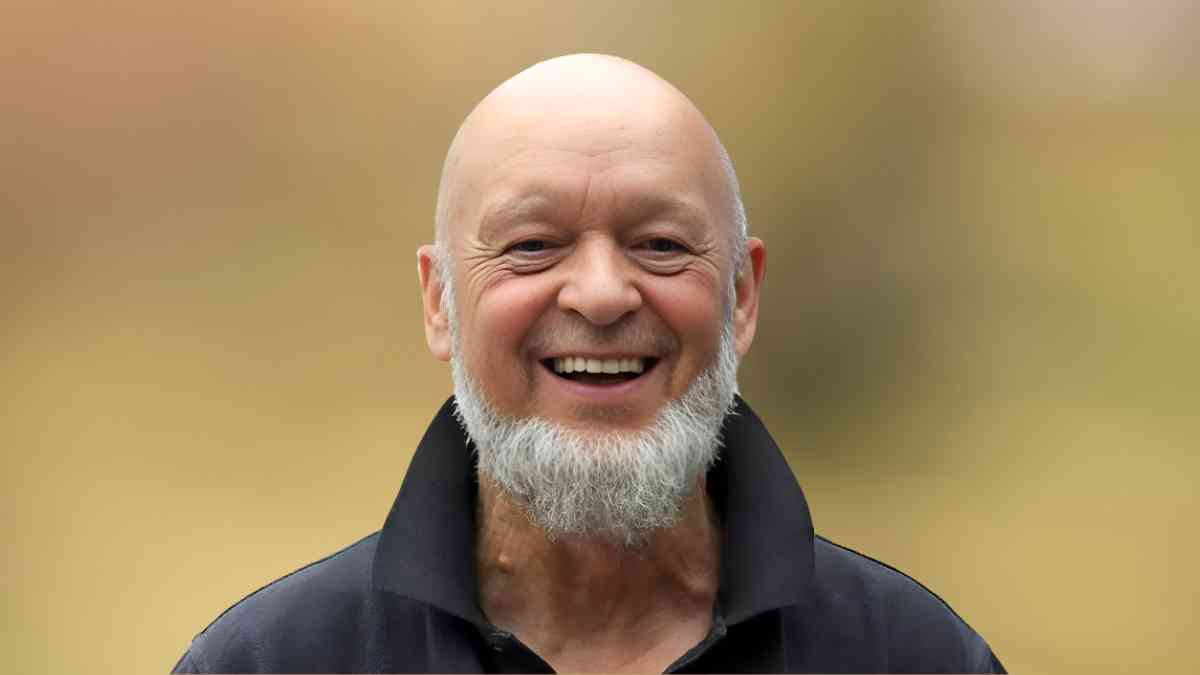Michael Eavis: The Visionary Farmer Behind Glastonbury’s Global Stage

Michael Eavis is the visionary English dairy farmer who founded the world-renowned Glastonbury Festival on his Worthy Farm in Somerset. Inspired by a Led Zeppelin concert in 1969, he launched the first festival in 1970, which has since grown into one of the largest and most influential music events globally. Known for its charitable contributions, cultural impact, and environmental focus, Glastonbury reflects Eavis’s values of community, activism, and sustainability. Despite his global fame, he remains grounded in his farming roots, with a net worth estimated between £5 million and £10 million.
Early Life and Humble Beginnings
Michael Eavis, born Athelstan Joseph Michael Eavis on October 17, 1935, in Pilton, Somerset, is best known as the founder of the iconic Glastonbury Festival. But before he became a legend in music culture, he lived the life of a traditional English dairy farmer. Raised in a Methodist family and educated at Wells Cathedral School, Eavis’s roots were planted firmly in rural life. After a short stint with the Merchant Navy, he returned to his family’s Worthy Farm, taking full control of the estate following his father’s death in 1954.
While managing the daily routines of farming, Eavis developed a broad worldview and a curiosity about music, community, and activism. These interests would later converge to transform a quiet farm into one of the most famous music venues on Earth.
The Birth of Glastonbury
The inspiration for what would become the Glastonbury Festival struck Michael Eavis in 1969 after he attended a performance by Led Zeppelin at the Bath Festival of Blues. Energized by the experience, he decided to host a music event on his farm. Thus, in 1970, the first Pilton Pop, Folk & Blues Festival took place. It drew a crowd of around 1,500 people, each paying £1, which included free milk from the farm.
A year later, the event was rebranded as the Glastonbury Fayre and was held in alignment with the summer solstice. The lineup included acts like David Bowie, cementing its credibility and appeal. The ethos of the festival was rooted in countercultural values—freedom, peace, and self-expression. It was a celebration of art and humanity, and under Michael Eavis’s guidance, it would only grow.
A Festival with a Purpose
Unlike many commercial ventures, Eavis ensured that the Glastonbury Festival retained its integrity. Over the decades, the festival evolved from a free-spirited gathering to a globally respected event that hosts over 200,000 attendees annually. Despite this enormous growth, the event has remained true to its founding values, continuing to donate millions to charities such as Oxfam, Greenpeace, and WaterAid.
The festival has also played an important role in local community development. Profits have funded everything from affordable housing in Pilton to environmental conservation projects. Michael Eavis’s vision wasn’t just about music; it was about making a tangible impact on the world.
Family, Legacy, and the Next Generation
Michael Eavis has been married three times and has five children. His daughter, Emily Eavis, has taken on an increasingly significant role in running the Glastonbury Festival. Working alongside her father, she has brought fresh energy and modern vision while respecting the event’s deep traditions.
Emily’s involvement ensures the continuity of the festival’s mission and values. Under their joint stewardship, Glastonbury has remained relevant, inclusive, and progressive. The seamless handover of responsibilities marks Michael Eavis not just as a great founder, but also as a wise mentor and leader.
Michael Eavis Net Worth and Recognition
Though Michael Eavis never sought fame or fortune, his contributions have brought both. As of recent estimates, Michael Eavis’s net worth is believed to be in the range of £5 million to £10 million. However, his real wealth lies in the cultural and social capital he has built.
In recognition of his contributions to music and charity, Eavis was awarded a CBE in 2007 and was knighted in the 2024 New Year Honours. His life’s work has not only enriched the cultural fabric of the UK but also influenced generations of artists, activists, and community leaders.
Political and Social Engagement
Michael Eavis has never been one to shy away from political engagement. A lifelong Labour Party supporter, he even ran as a Labour candidate in the 1997 general election for the Wells constituency. Though unsuccessful, his campaign was a testament to his commitment to social justice and public service.
He has also supported the Campaign for Nuclear Disarmament and various environmental causes. These affiliations reflect the values that Glastonbury stands for and help explain why the festival resonates so deeply with its audience.
Personal Life and Beliefs
Eavis is a devout Methodist, a non-smoker, and a teetotaler. These personal choices may seem incongruent with the hedonistic image of a music festival, but they highlight the duality of his character. He is both a disciplined farmer and a free-spirited visionary, a man who believes in both order and spontaneity.
Despite the glamour that now surrounds Glastonbury, Eavis continues to live a relatively modest life. He remains involved in the day-to-day activities of Worthy Farm, still deeply connected to the land that made his dreams possible.
Cultural Impact of Glastonbury
Under Michael Eavis’s leadership, Glastonbury has become more than a festival—it’s a cultural institution. It has hosted performances from global icons such as Paul McCartney, Beyoncé, and Radiohead, while also giving a platform to emerging artists and local talent.
The festival has influenced other global events and inspired countless community-led projects. It has become a benchmark for how music can intersect with activism, community, and sustainability.
Sustainability and the Future
One of Michael Eavis’s most enduring contributions is his commitment to sustainability. The festival has implemented a range of eco-friendly practices, including recycling programs, renewable energy initiatives, and plastic reduction schemes. These measures are not only environmentally sound but also educational, helping attendees understand the importance of responsible consumption.
Looking to the future, Eavis and his daughter continue to innovate. Plans for smaller, off-season events, community outreach, and digital engagement are all on the horizon. While the physical festival remains the flagship, the spirit of Glastonbury is evolving to reach new audiences in new ways.
Conclusion
Michael Eavis’s story is one of vision, resilience, and unwavering commitment to a set of ideals. From a modest dairy farmer to a global cultural icon, his journey is a powerful reminder of what one person can achieve with passion, purpose, and perseverance.
He has shown that music can do more than entertain—it can inspire, unite, and change the world. His legacy is not just in the stages and the crowds, but in the lives improved and the communities strengthened by his efforts.
As Michael Eavis enters the twilight of his career, he does so with the confidence that his vision is in good hands. The fields of Worthy Farm will continue to echo with music, laughter, and the spirit of change—all thanks to the farmer who dared to dream.



